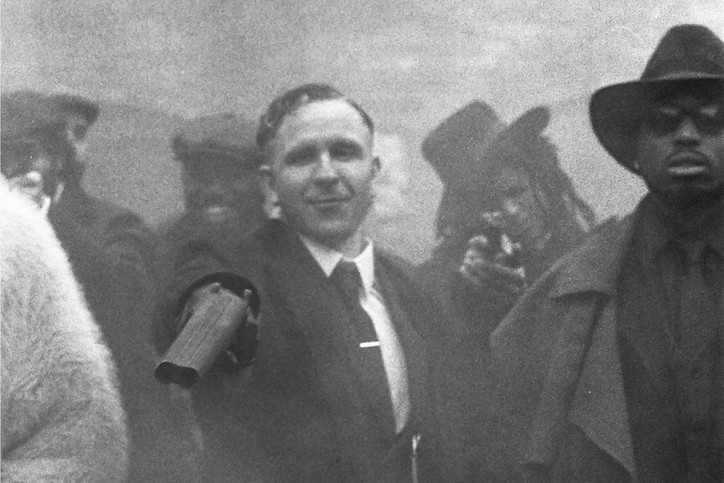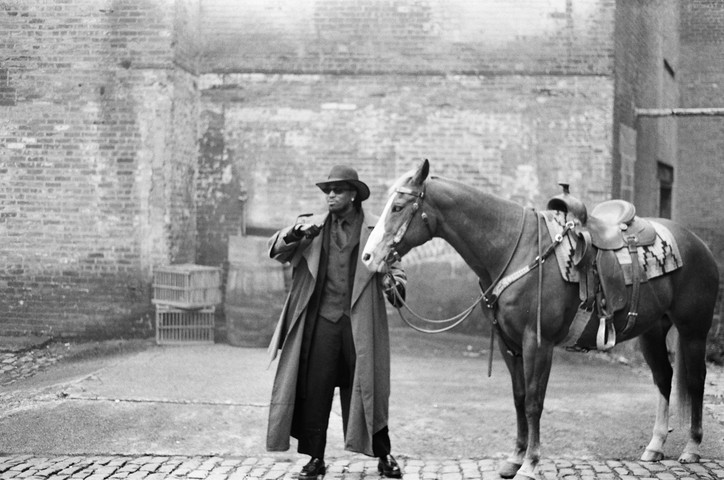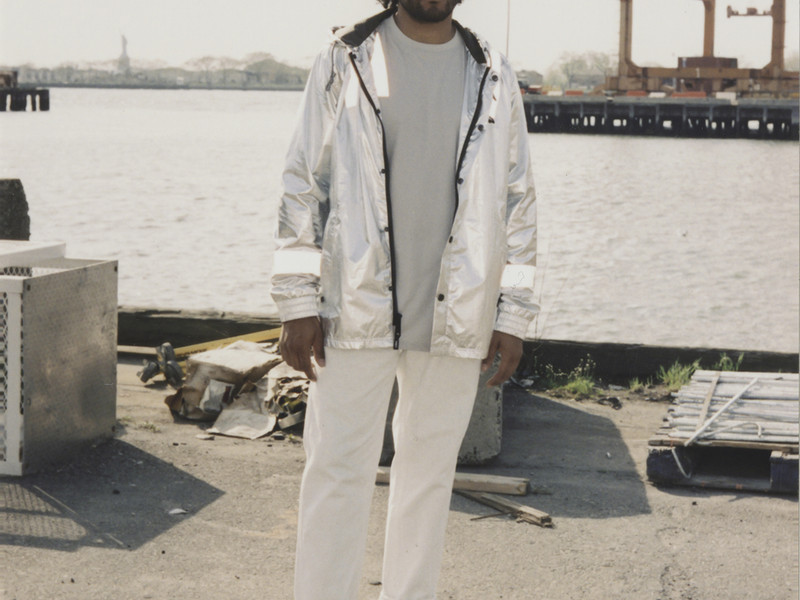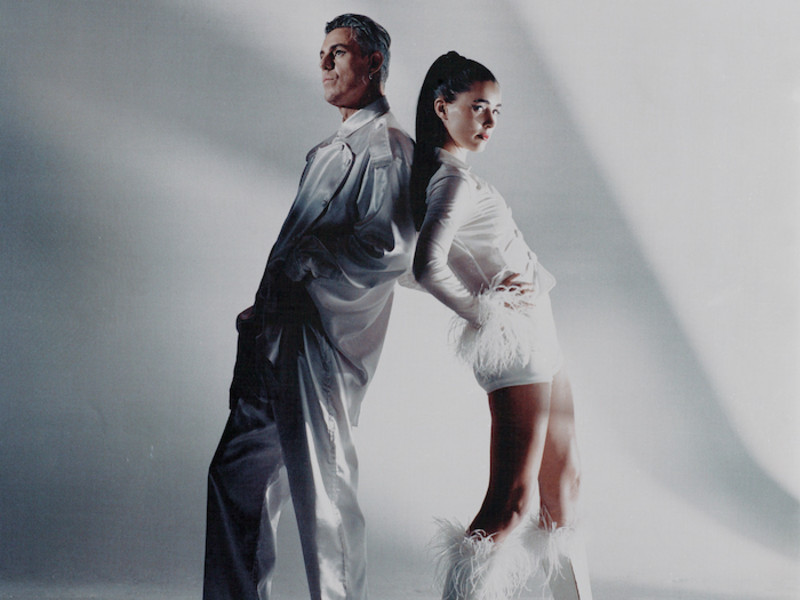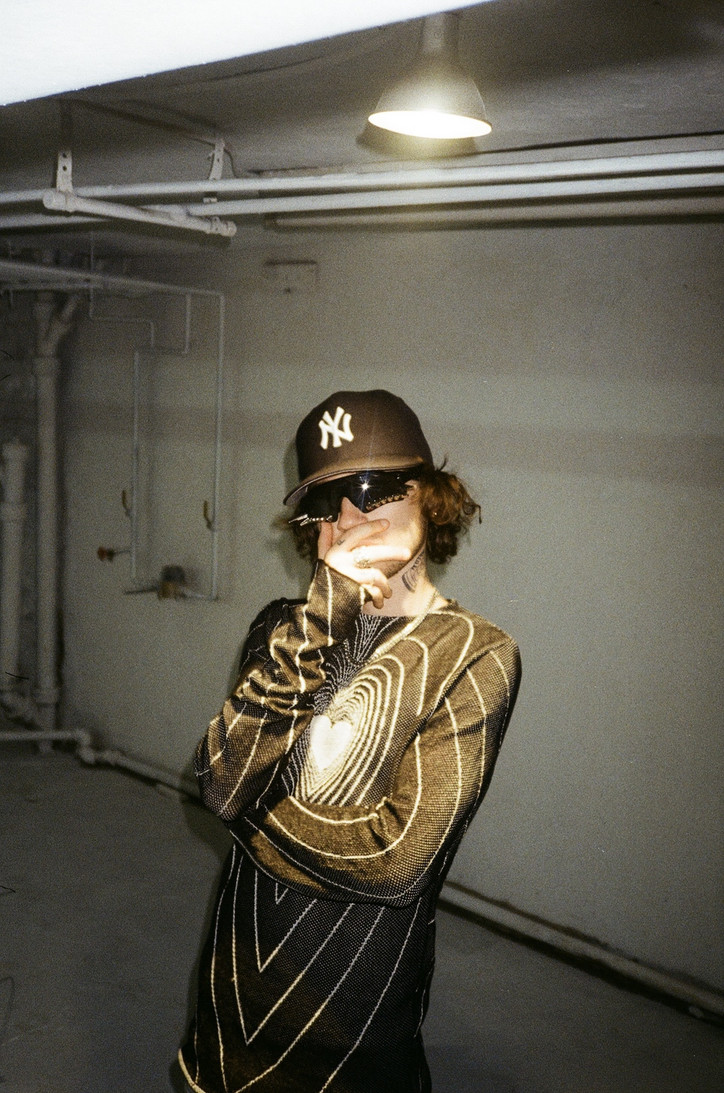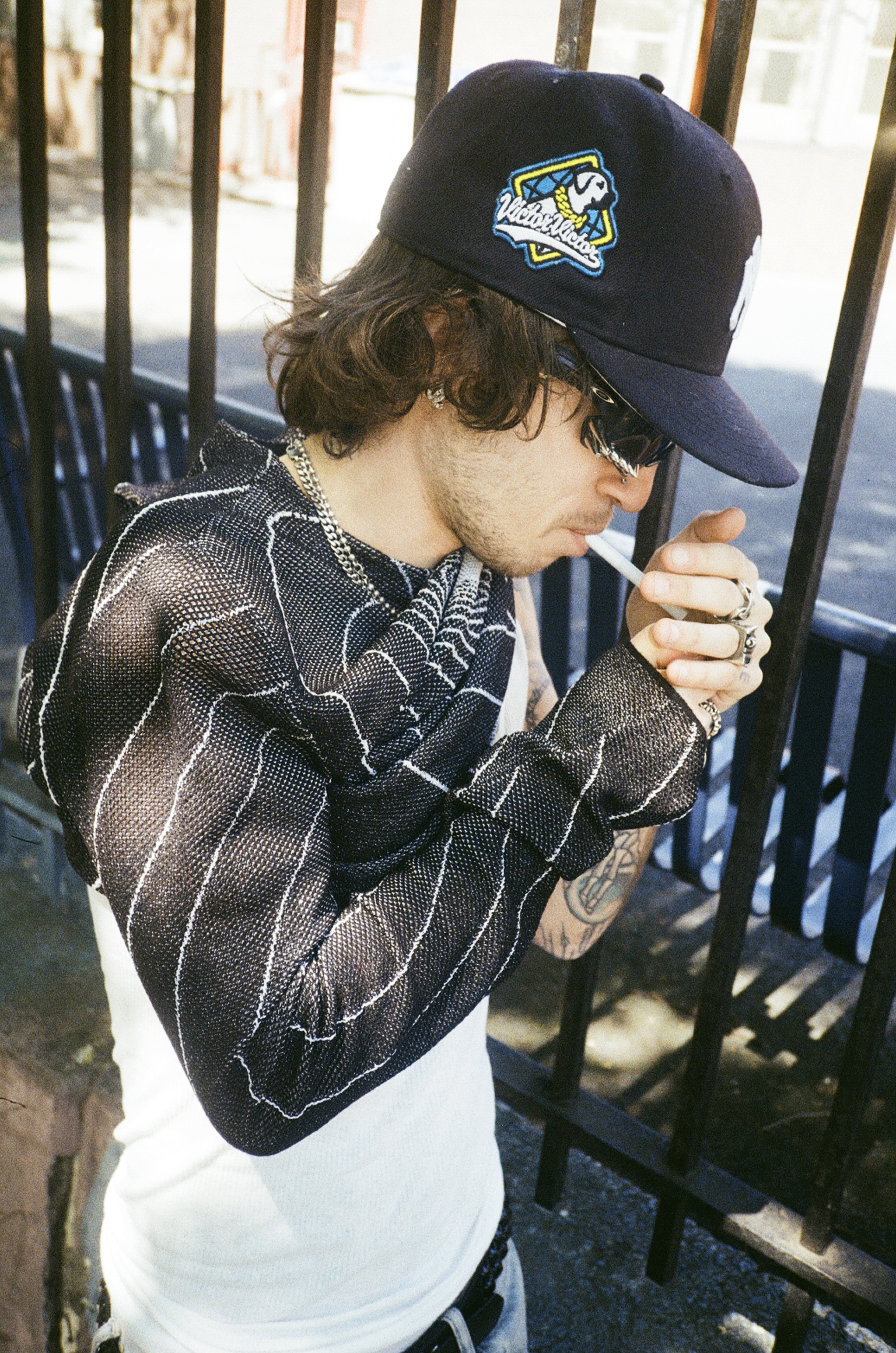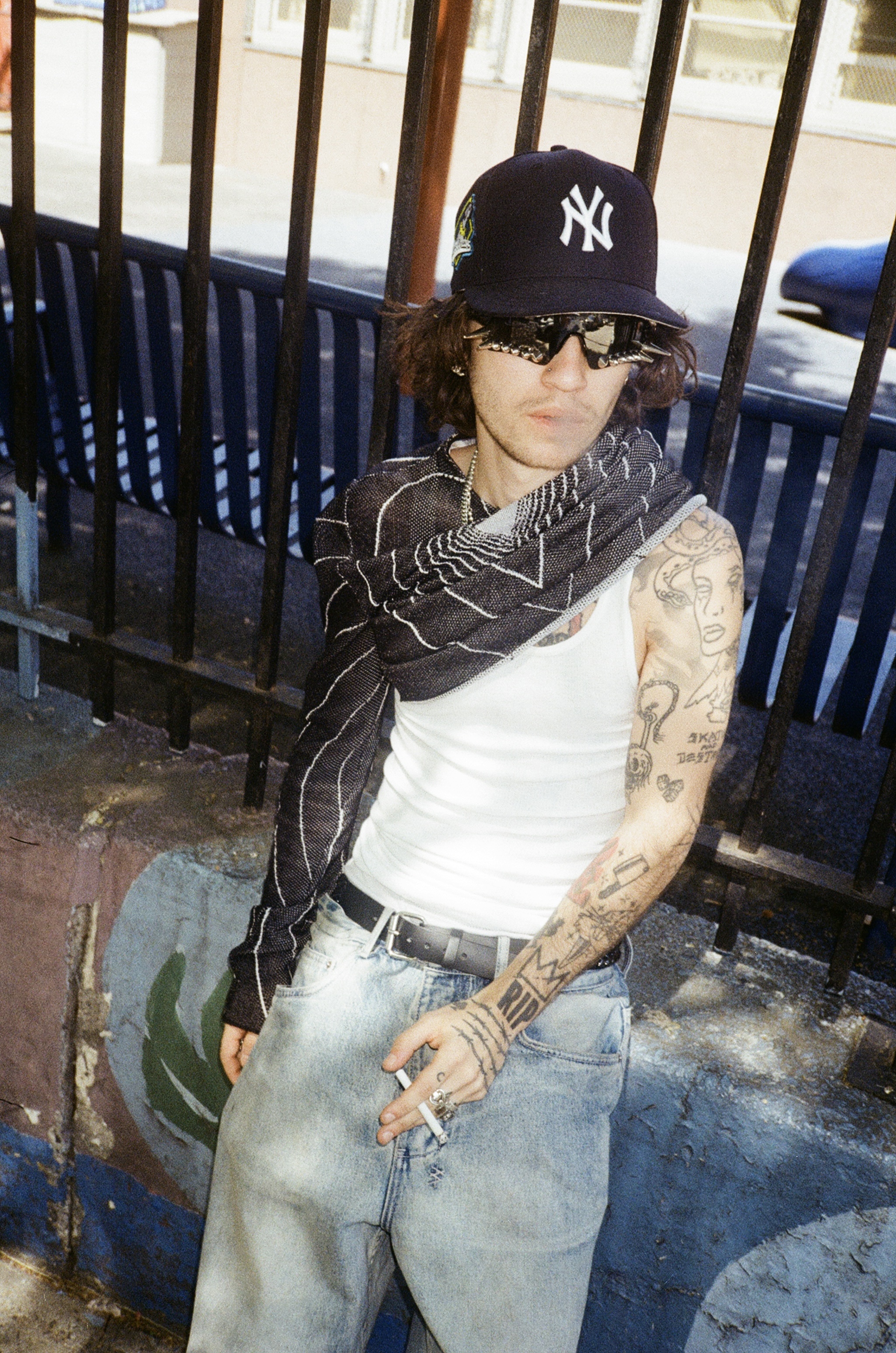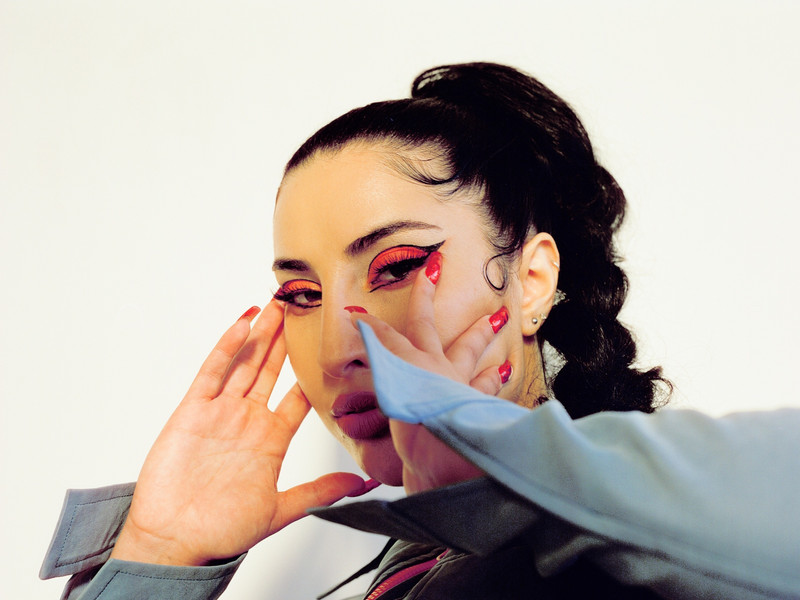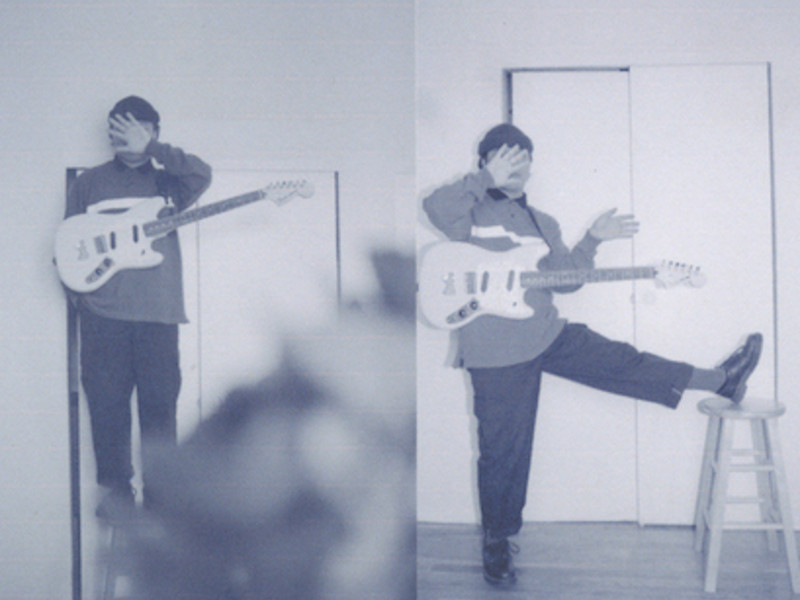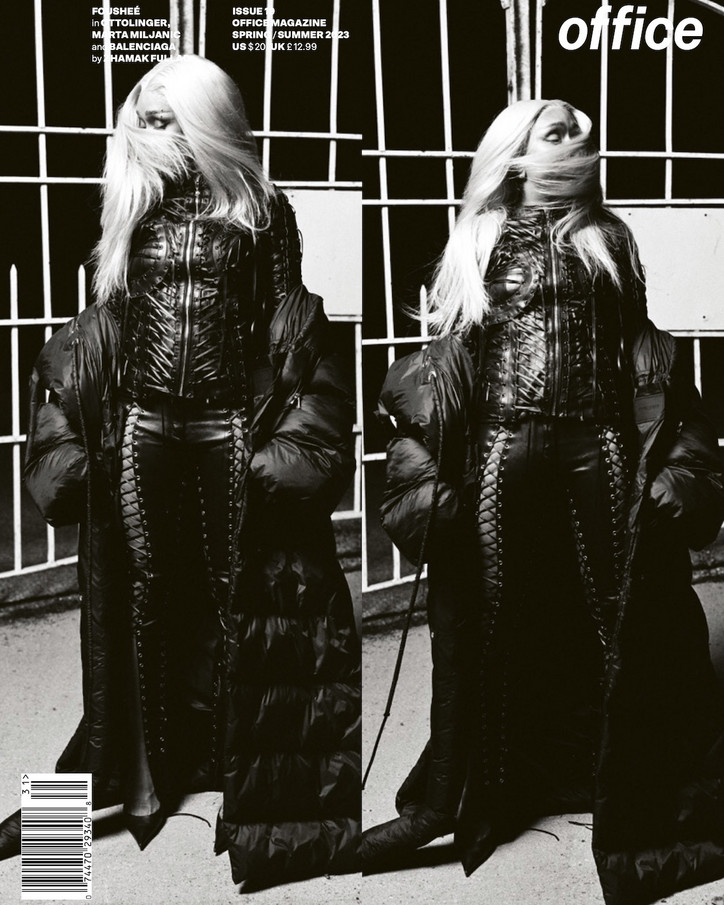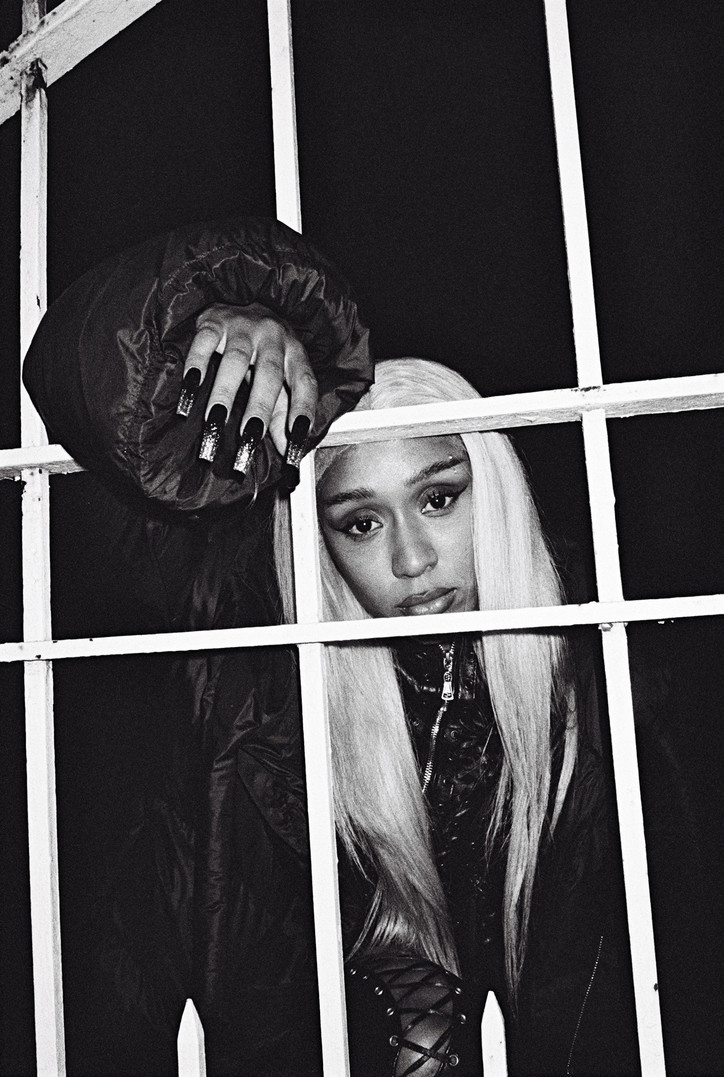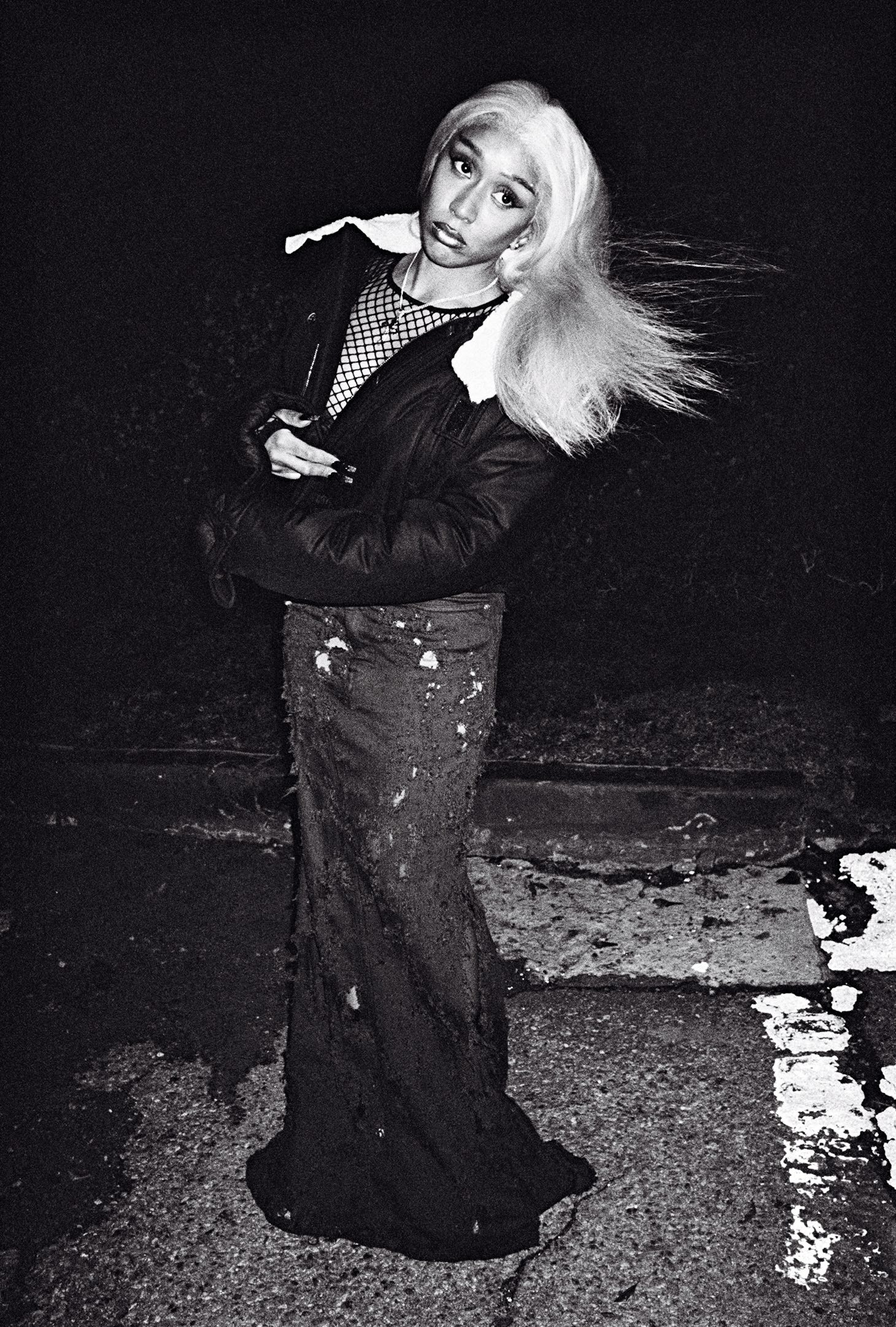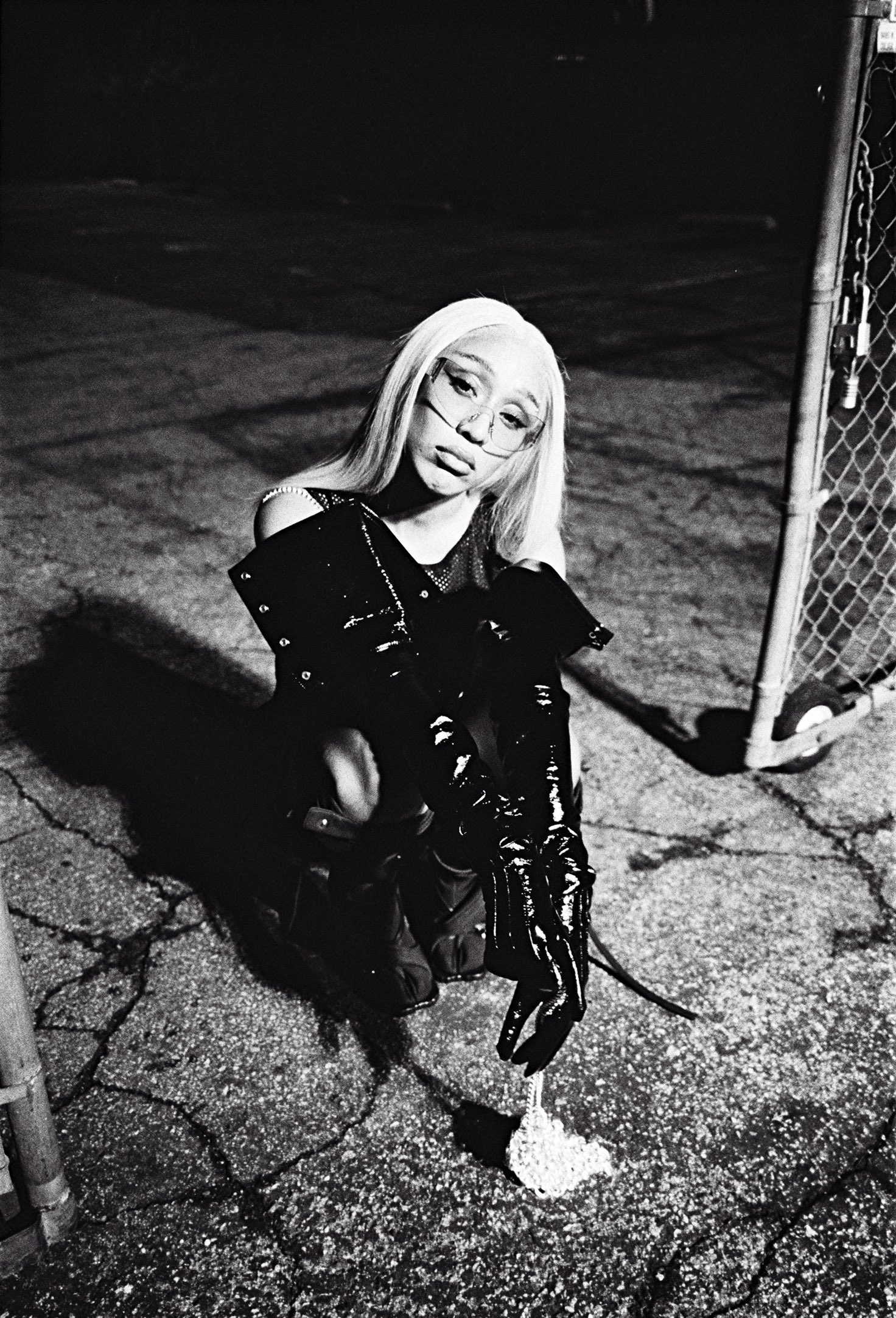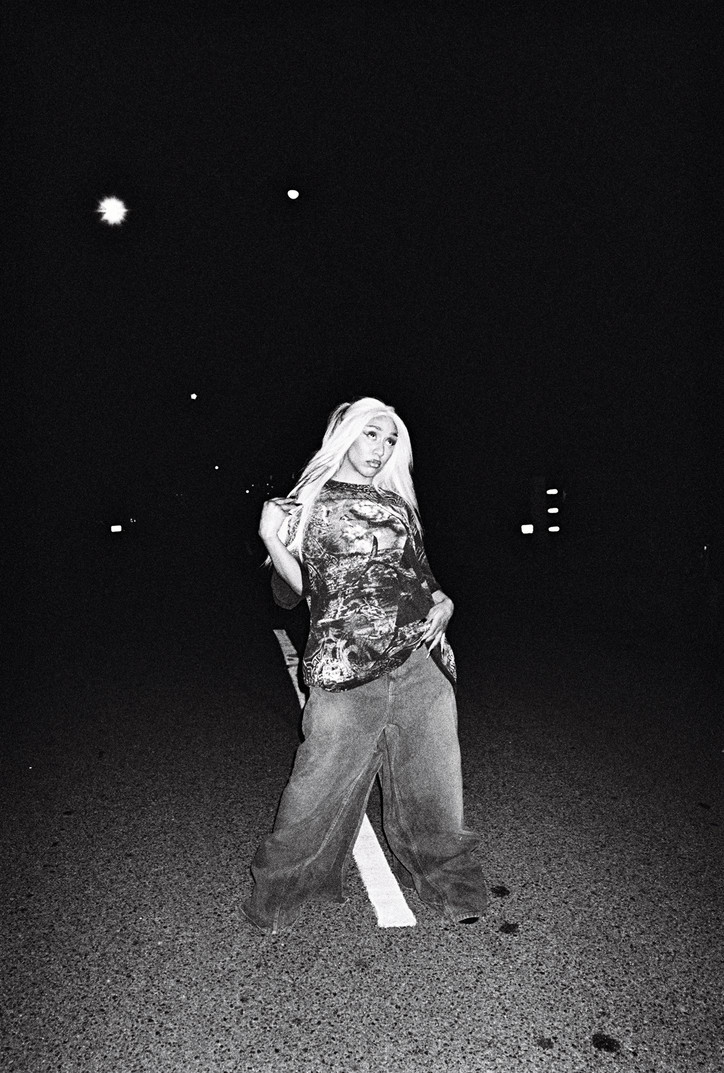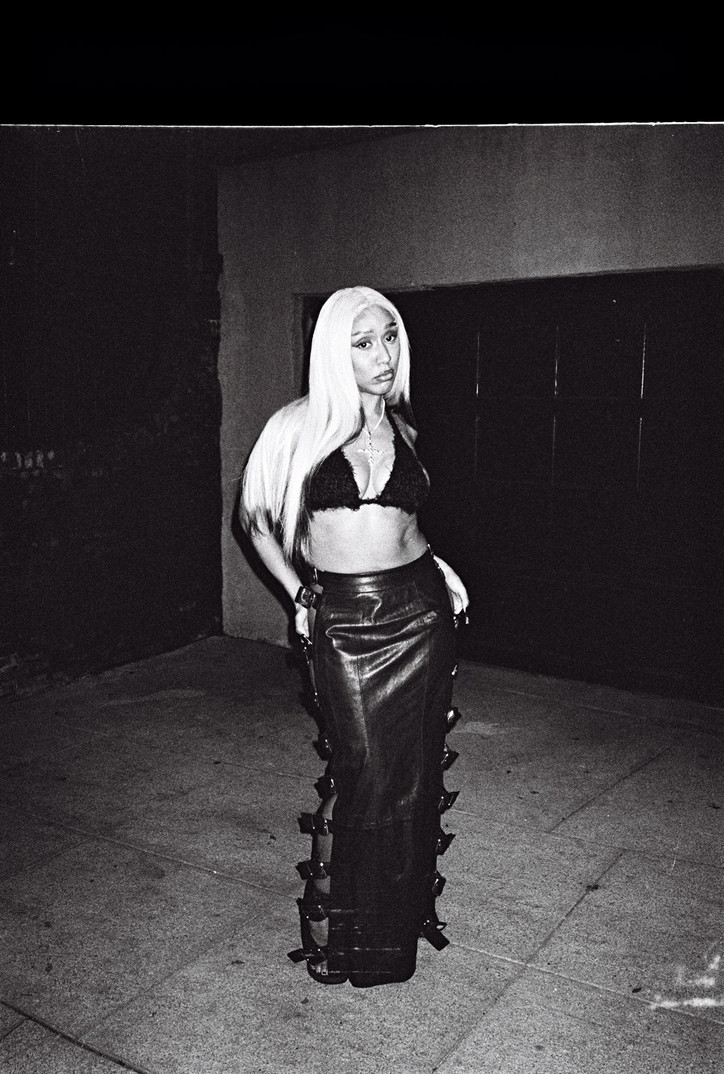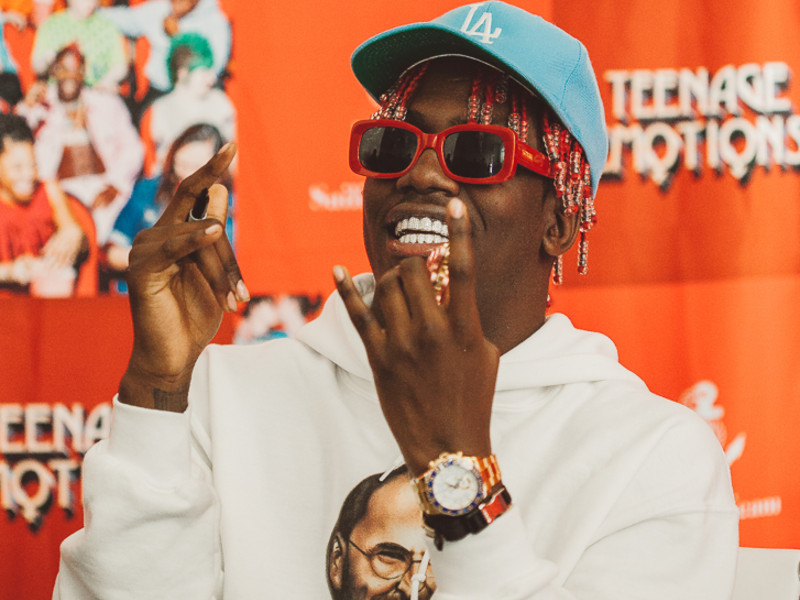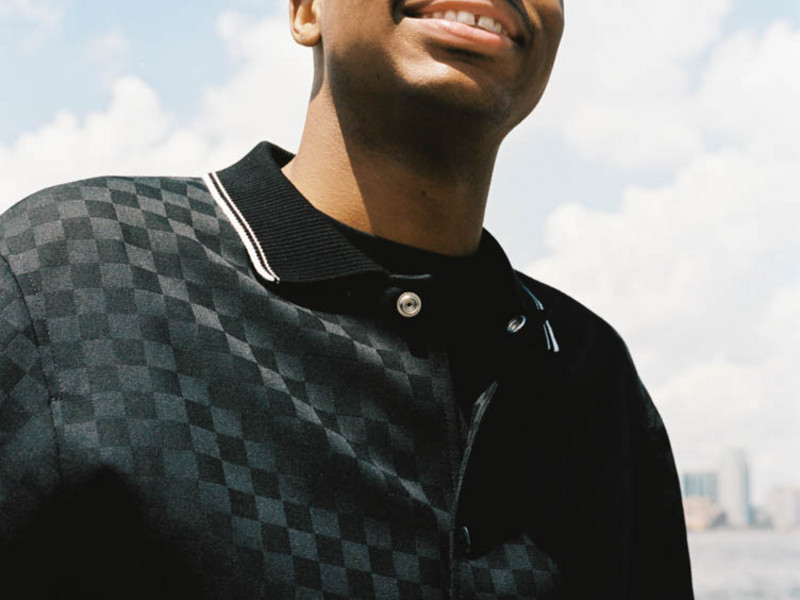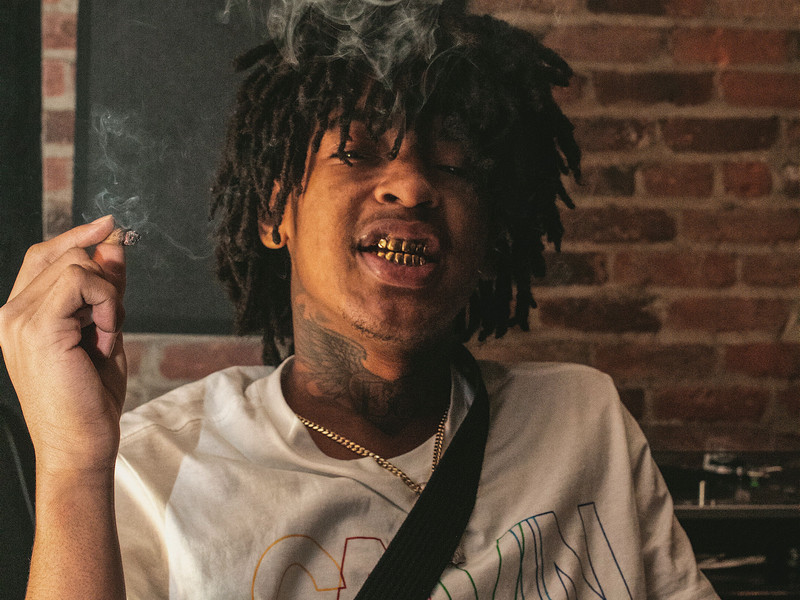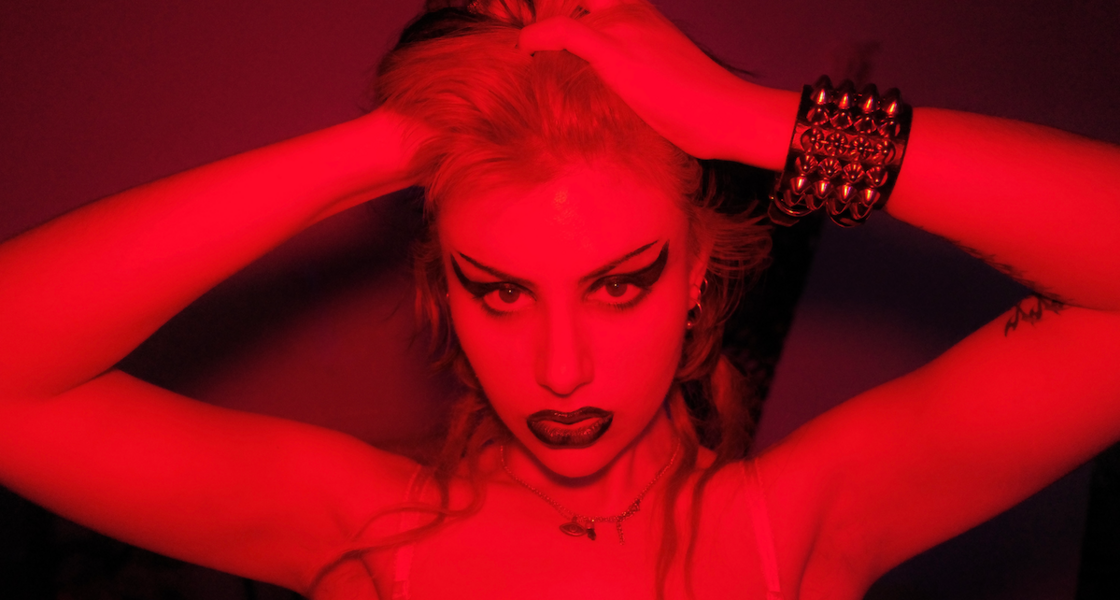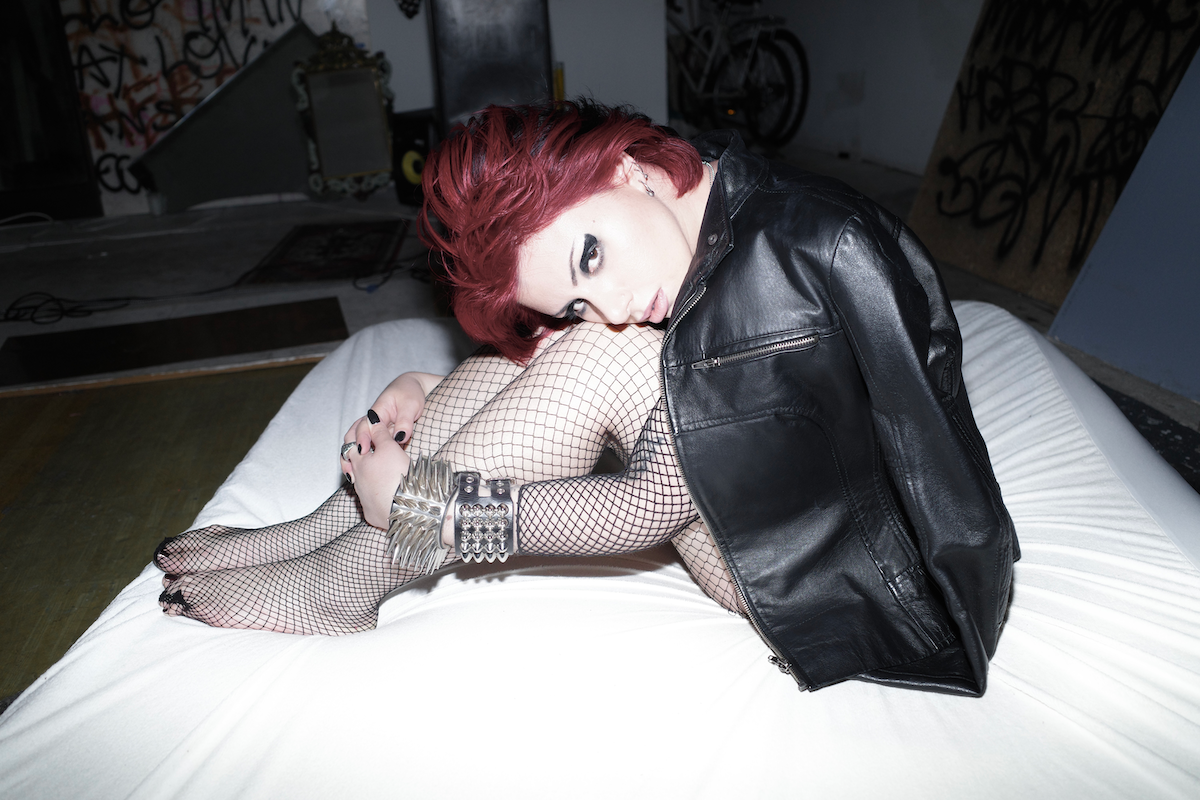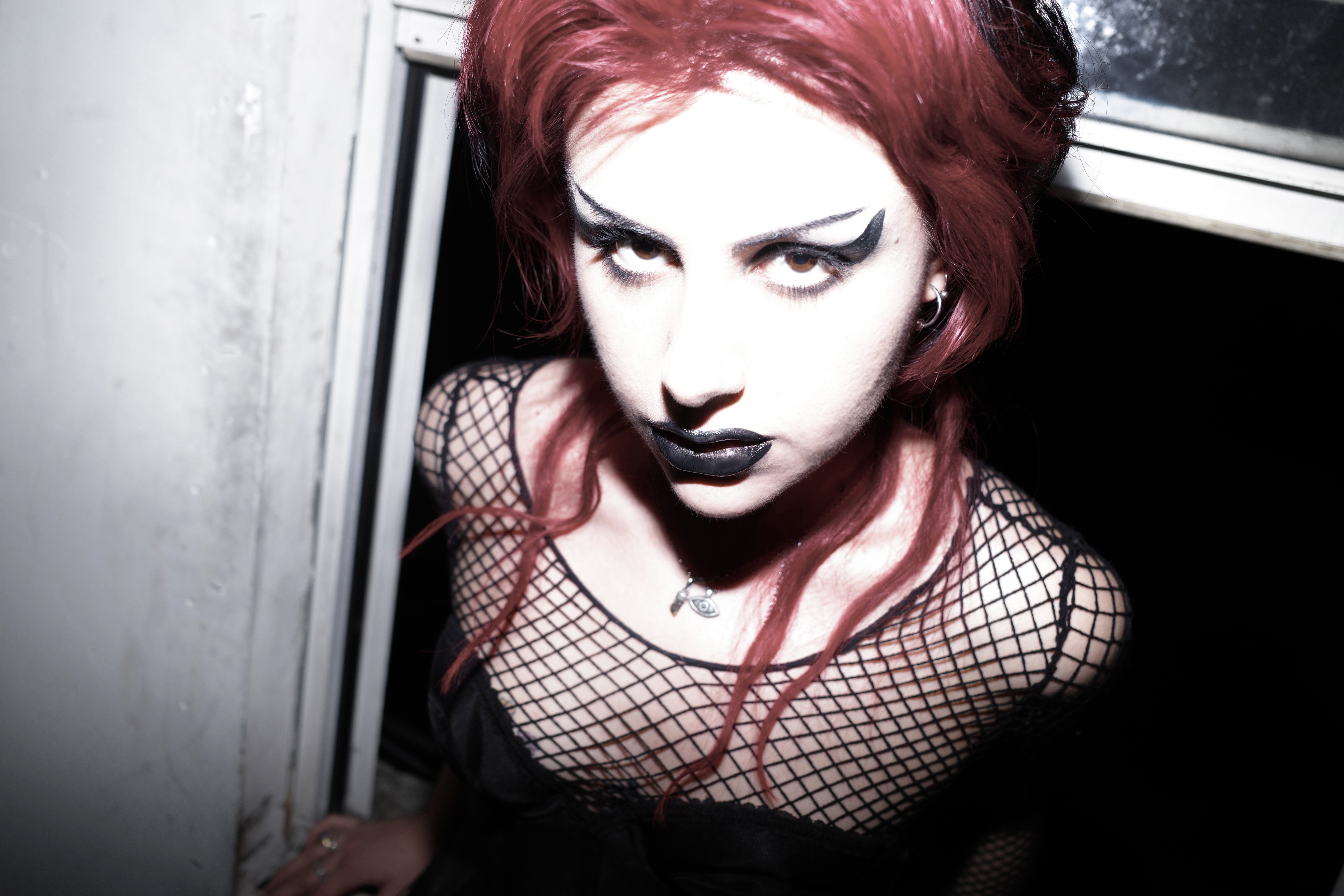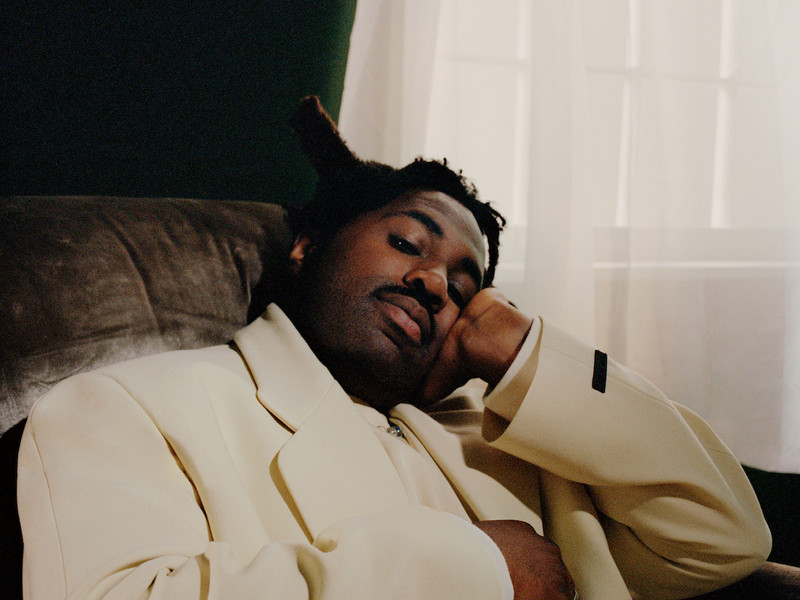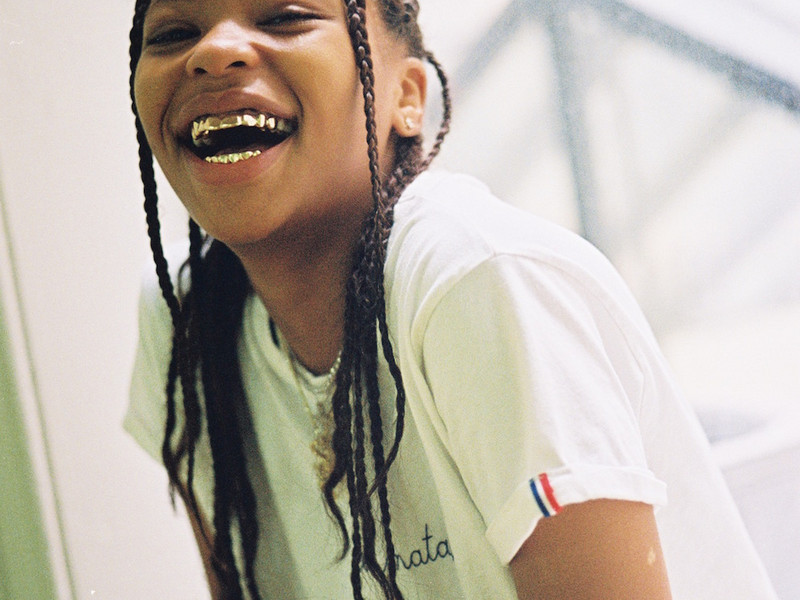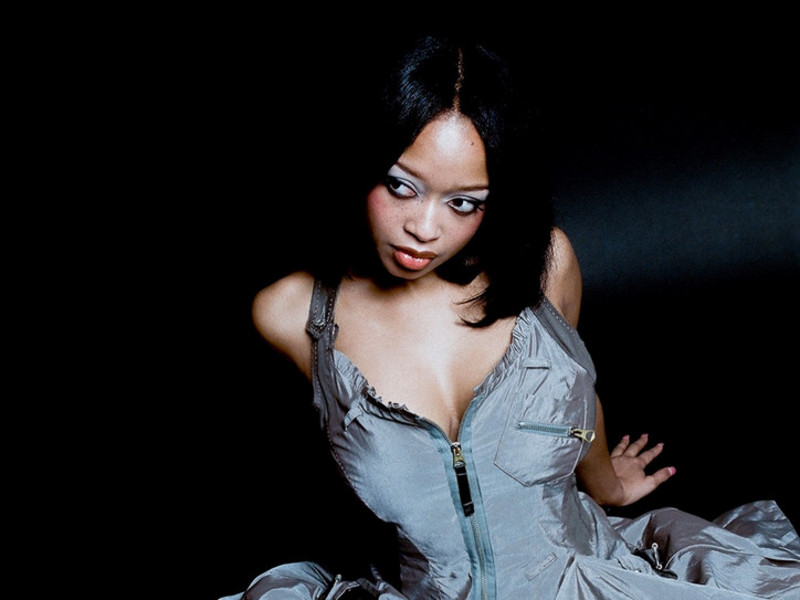While the audience at large may have heard a lilt in the audiovisual gap between Fousheé’s first viral hit and her softCORE project, for the artist herself, the change of direction went almost unnoticed.
“It just happened so naturally,” she tells me, a honey-colored curl falling into her face, “It’s how I felt, and it reflected the music I was listening to. I didn’t notice how extreme the difference was until it was out.” And while her label had her back, believing in the song and video ideas that stood out against anything she’d done before, their support — or her audience’s — felt secondary.
“I think the need for me to express certain things holds a greater weight, personally, than anyone’s support. But I’m always like, I want that support, too. What if you take that leap and you’re completely in touch with yourself and no one likes it and no one supports your message?” But the endearingly soft-spoken Foushee before me finds her balance in a heartbeat, adding, “at the same time, I’m someone who likes harsh honesty. If it’s constructive, I can grow from it.” Suddenly I’m reminded that as shy as she may seem today, this is the same girl who put in hours perfecting her guttural, heavy metal growl.
Fousheé is full of yin and yang, even in reflecting on her East Coast roots. “I was born in Newark, and then I moved around Plainfield for a while. My mom immigrated from Jamaica, and we would try to work up to better neighborhoods. Then we ended up in Bridgewater, and we stayed there for a while. Pretty good area. That was the suburbs… I hated New Jersey growing up,” she confesses. “Now I appreciate it. I think I have a lot to owe to New Jersey for my eclectic music taste… It was a mix of the music New Jersey is known for that lent itself to my taste, but also my mom is Jamaican — so there was reggae and a lot of Celine Dion heavily playing in the house. And then I was just a black girl growing up, so I listened to hip hop and R&B. That's where I learned how to write metaphors and stuff. Battle rap. Smack music. When I would turn on the radio, it would be like ‘97. Overall, there was a whole world of different music that I was exposed to, and I don't think I would've been if it wasn’t for Jersey.”
Though there was alternative rock being played and made around her growing up, at the time it didn’t suit her. But years later, upon moving to New York, that facet of suburban subculture came back into the forefront, and sparked Fousheé’s interest. “It was in New York that I fell in love with guitar and live music.” Her mother, back in Jamaica, had been in an all girls band, and always encouraged Foushee’s musical experimentation and ventures, even from an early age. However, when I ask when she first thought of herself as a “musician” proper, Fousheé laughs and looks at the Praying bag printed with the words “give girls money” propped in her lap. “I always knew I wanted to be a recording artist, since maybe age five. But even today… I don’t know if I think of myself as a Musician.”
While I’d argue the contrary, it seems that for the burgeoning talent, admonishing the formal label for herself has been working out.
